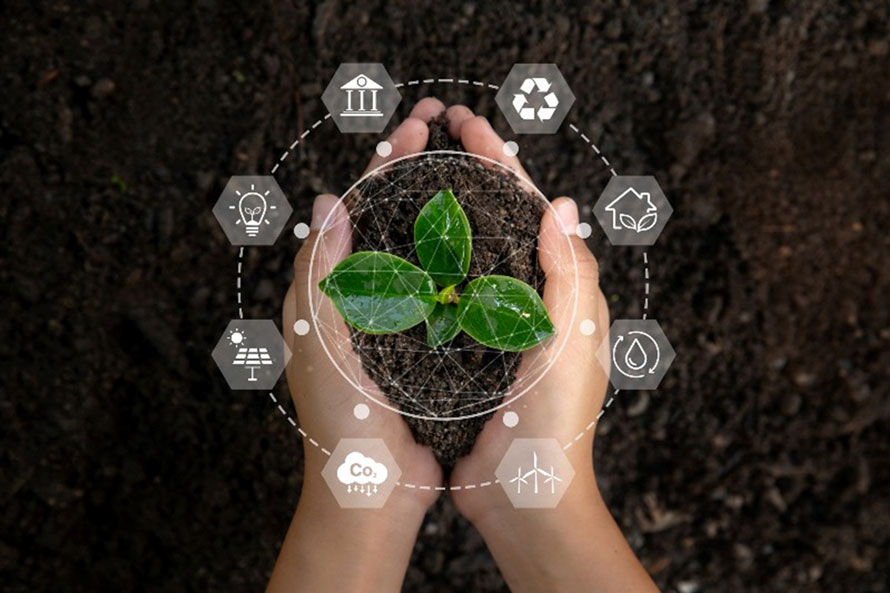5901 Botham Jean Blvd, Dallas, TX 75215
What’s the Relationship Between Sustainability and Recycling?
April 9, 2024The Link Between Sustainability and Recycling

In today’s world, sustainability has become a crucial focus in the fight to protect our planet for future generations. At its core, sustainability involves maintaining ecological balance by avoiding the depletion of natural resources. A key component of sustainability is recycling, which plays a major role in conserving resources and reducing our impact on the environment. This blog explores recycling and sustainability facts and how they impact the environment.
Understanding Sustainability
Sustainability is the ability to meet society’s current needs without exhausting resources for future generations. It rests on three pillars: environmental, economic, and social. Environmental sustainability ensures that natural resources are used responsibly and preserved for future use. Economic sustainability focuses on practices that support long-term economic health, while social sustainability emphasizes the importance of social equity and community well-being. Sustainable practices are vital to ensuring a livable planet for future generations.
The Basics of Recycling
Recycling involves transforming waste materials into new, reusable products. Recycling reduces the use of raw materials, minimizes energy usage, and decreases pollution. Commonly recycled materials include plastic, paper, metal, and glass. The recycling process involves several stages: collection of recyclable materials, sorting them by type, processing these materials into raw forms, and manufacturing new products from these recycled materials.
The Environmental Impact of Recycling
Recycling significantly decreases the waste that ends up in landfills, helping conserve space and reduce the harmful effects of landfill leachate. By conserving natural resources, recycling prevents the over-extraction of raw materials, preserving ecosystems. Additionally, recycling reduces pollution: it minimizes air pollution from incineration, water pollution from landfill seepage, and soil pollution from hazardous waste. It also saves energy by producing materials using less energy than it takes to produce materials from raw resources. This is a key aspect of recycling and environmental sustainability.
Recycling and Economic Sustainability
Recycling doesn’t just benefit the environment – it also supports economic sustainability. It creates jobs in both the recycling and manufacturing industries, from collection and sorting to processing and selling recycled goods. Businesses and consumers also benefit from cost savings, as recycled materials can be cheaper than new raw materials. Recycling also plays an important role in the circular economy, a system aimed at eliminating waste and continually using resources by creating a system where products and materials are reused. This connection between recycling and sustainable development is vital for long-term economic health.
Social Benefits of Recycling
Recycling fosters community involvement and education, encouraging individuals to participate in sustainable practices. This heightened awareness leads to a greater understanding of environmental issues and promotes responsible consumption patterns. Through community programs and educational initiatives, recycling helps build a culture of sustainability and environmental stewardship.
Challenges and Limitations of Recycling
Despite its benefits, recycling faces several challenges. Contamination of recyclable materials can hinder the recycling process, making it less efficient and more costly. Current recycling technologies have limitations, and there is a need for better infrastructure and more effective recycling policies. Additionally, the importance of reducing and reusing cannot be overstated; recycling alone is not enough to achieve sustainability. A holistic approach that includes reducing consumption and reusing materials is essential. This is particularly true for plastic recycling and sustainability, where contamination and technological limitations are significant hurdles.
Enhancing the Relationship Between Sustainability and Recycling
To strengthen the relationship between recycling and sustainability, innovative recycling technologies and practices are crucial. Policies and regulations that promote recycling and sustainable business practices can significantly enhance recycling efforts. Corporations must take responsibility by adopting sustainable practices, and individuals can contribute by reducing, reusing, and recycling properly. By embracing these practices, we can enhance recycling and environmental sustainability.
Embrace Sustainability: Strengthen Recycling with Okon Recycling
Recycling and sustainability are deeply interconnected, with recycling playing a vital role in promoting environmental, economic, and social sustainability. By understanding and addressing the challenges of recycling, we can enhance its effectiveness and contribute to a more sustainable future. Okon Recycling, serving Dallas-Fort Worth, Texas, with over a century of experience and a forward-thinking approach, invites you to join us in making a meaningful impact. Contact us online or at 214-426-6566 today, and together, we can drive innovation in recycling and build a more sustainable world for all.
